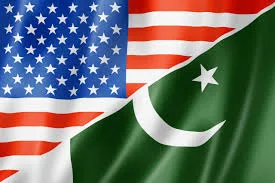Child development.
Physical growth.
Social development.
Emotional development.
Intellectual development.
Influence of the family.
The role of culture.
Development of personality
Discipline and punishment.
Individual differences
Group behavior.
Chapter
4
CHILD
DEVELOPMENT
The
Chapter at a Glance
The Children’s Century.
Importance of Child development.
Significance of developmental changes.
Importance of early infancy and childhood
in human development.
Freud’s contributions.
Educational implications of child development.
“The
Children’s Century”
The contemporary age has witnessed an
ever-growing interest in the welfare and education of children. It is on
account of this popular recognition of the significance of the period of
childhood that the present age has sometimes been called “the children’s
century”.
From this point of view a study of child life
has an importance of its own besides being an aid in the understanding of the
adult. Child development has now become a very popular subject of study not
only among parents and teachers but also among all those fond of pursuing an
interesting and informative field of knowledge regarding human development.
“Child
Development”
Child development refers to the entire period
of physical and metal immaturity. It begins with conception and ends with the
attainment of full adulthood, which may start in the early of mid-twenties.
Besides the childhood period it thus includes the adolescent period as well.
Though humanity has been interested in children since life began, scientific
study and research in the field of child development is comparatively recent in
origin.
Webster’s Dictionary defines “development” as
“the series of changes which an organism undergoes in passing from an embryonic
state to maturity”. These changes, as we shall see in the subsequent chapters,
include physical, social , emotional and intellectual changes.
“Significance
of Developmental Changes”
From the very start of human life as the
fertilized ovum to old age and senility, the process of change and development
is far more conspicuous by its rapid rate among children. The importance of
these continuous changes among children has been highlighted by research in the
field of child psychology and child education. As a consequence of these
developmental changes certain characteristics emerges in the individual which
make a permanent stamp on his entire life.
“Importance
of Early Infancy and Childhood in Human Development”
An individual’s ultimate success and happiness
is largely determined by the way he happened to have spent his early infancy
and childhood period. The early years are the learning years. It is during
these years that the most significant patterns of thought and behavior are
formed.
Motor skills, language habits and knowledge
about the world are acquired mostly during childhood. These early habits,
attitudes and experiences and their effects on the life of the individual are
so lasting that once learned it becomes exceedingly difficult for the
individual to renounce or modify them.
Many other aspects of development which were
not clearly understood in the past have now been found to depend mainly on
learning during infancy and childhood. It has been discovered that the
emotional responses of the grown up adult are largely determined by his early
childhood experiences. Thus in order to understand an individual’s reaction to
his present joy, sorrow, grief and frustration, a knowledge of emotional
experiences during early childhood can prove immensely helpful. Similarly,
social and cultural adjustments throughout life have their roots in one’s
career as a child in early years.
“Freud’s
Contribution”
In fact the credit goes to Sigmund Freud for
his pioneering efforts in emphasizing the significance of the period of infancy
and childhood in human development. It was he who discovered that most of the
habits, attitudes, views, preferences, complexes, mental peculiarities and
abnormalities of adults date back to the early years of their lives. On the
basis of these observations Freud advocated that a successful adjustment to
life in the present necessitated a thorough understanding of past experiences.
“Educational
Implications”
To be successful in the teaching crafts a
teacher, therefore, must have a thorough knowledge of the process of child
development. A mere bookish knowledge of child life, however, will not be of
much help to a school teacher.
Descriptions and researches contained in the literature on child
development are, of course, very enlightening for a parent or a teacher. But
unless supplemented by concrete observations of and experimentation with
children a mere bookish reading will be of little value in actual school or
home situations.
“Enlightening
and Indispensable”
A sound knowledge of various characteristic
features of child development though infancy, childhood and adolescence is
indispensable for teacher owing mainly to the following reasons:
(1)
It gives him the most authentic knowledge
regarding the human stuff that he deals with, i.e., the children.
(2)
It enables him to understand the root causes of
their good and bad behavior.
(3)
It helps him to match his teaching techniques and
standards to the developmental level that a child has actually attained. He is thus enabled to avoid being too
difficult, too easy or too commonplace in the class-room.
(4)
By enabling him to understand his own infancy
and childhood periods it facilitates for him an understanding of his own self.
This self understanding proves immensely helpful for him in becoming a better
person and a better teacher.
A
systematic and scientific study of the various stages of child development is,
therefore, not only enlightening but indispensable for a really efficient
teacher in a modern school.
An outline of some of the characteristic
features of children’s physical, social, emotional and intellectual development
and their educational implications will be found in the following chapters of
this Part.






